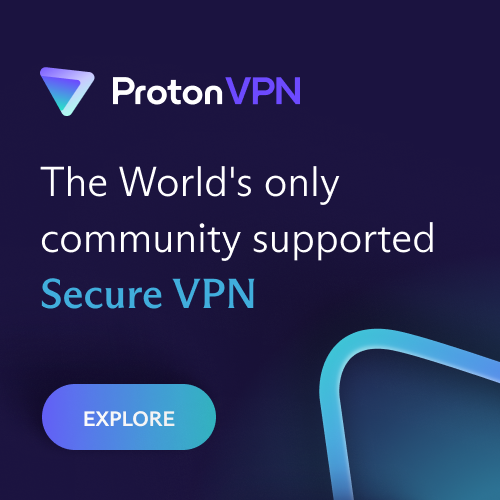
Nowadays, the internet plays a central role in our lives, and as a result, online privacy has become a crucial concern. With the growing threat of hackers, government surveillance, and questionable data collection practices by companies, it is vital that you protect your personal information. One of the most effective tools for this is a Virtual Private Network, or VPN.
What is a VPN?
A VPN, or Virtual Private Network, is a technology that creates a secure and encrypted connection between your device and the internet. When you use a VPN, all your device's internet traffic is routed through an intermediary server located elsewhere, masking your real IP address and ensuring that your online activities remain private and anonymous.
How Does a VPN Work?
The operation of a VPN can be understood in three simple steps:
- Data Encryption: When you connect your device to a VPN, all data sent and received is encrypted. This means that even if someone intercepts your internet traffic, they will not be able to read or decode the information.
- Routing Through a Remote Server: The VPN redirects your internet traffic through a remote server operated by the VPN provider. This server can be located anywhere in the world, and your IP address will be changed to that of the server, hiding your real location.
- Decryption and Access to the Destination: Finally, the encrypted data is decrypted by the VPN server before being sent to the final destination on the internet, such as a website or online service. This process ensures that your online activities remain private and secure.
Why Use a VPN?
There are several reasons why using a VPN is highly recommended:
- Security in Remote Work: With the increase in remote work, protecting corporate data and communication between employees has become a priority. Using a VPN ensures that remote connections to the company’s network are secure by encrypting confidential data and preventing sensitive information from being intercepted by third parties. Additionally, the VPN allows employees to access internal company resources from anywhere in the world, as if they were in the office, maintaining both productivity and security.
- Online Privacy and Anonymity: A VPN hides your real IP address, making it much more difficult for third parties to track your online activities. This is especially useful when using public Wi-Fi networks, where your connection may be more vulnerable to attacks.
- Protection Against Hackers and Spies: Since all your data is encrypted when using a VPN, even if someone intercepts your connection, they will not be able to access your personal information, such as passwords, banking data, and private messages.
- Access to Geo-Blocked Content: A VPN allows you to virtually change your location to access content that may be restricted in your region. This is useful, for example, for watching streaming catalogs from other countries or accessing websites blocked at your workplace or school.
- Avoiding Government Surveillance: In some countries, internet censorship and government surveillance are real concerns. Using a VPN can help bypass these restrictions and ensure that your online activities remain private.
- Savings on Online Purchases: Some websites and services adjust their prices based on the user's location. With a VPN, you can change your virtual location and potentially find better deals on airfare, hotels, and other services.
How to Choose the Right VPN?
With so many options available, choosing the right VPN can be a challenging task. Here are some factors to consider:
- Security and Encryption: Make sure the VPN uses strong encryption protocols, such as OpenVPN or WireGuard. This ensures that your data is protected against breaches.
- Data Logging Policy (No-Logs): Opt for a VPN with a clear policy of not keeping logs of your online activities. This ensures that even the VPN provider cannot access your personal information.
- Connection Speed: Some VPNs may slow down your internet connection. Choose a VPN that offers fast servers and good bandwidth to avoid delays and buffering.
- Ease of Use: If you are not tech-savvy, choose a VPN with a simple and easy-to-use interface. Many providers offer intuitive apps for different devices.
- Customer Support: Ensure that the VPN provider offers efficient customer support available 24/7 to assist you in case of problems or questions.
Here are some recommended VPNs
 Proton VPN: Proton VPN is a VPN service developed by the creators of ProtonMail, known for their commitment to user privacy and security. Based in Switzerland, a country with strong privacy laws, Proton VPN offers robust encryption and a strict no-logs policy for your traffic. You can start with a free plan and upgrade to a paid plan if needed.
Proton VPN: Proton VPN is a VPN service developed by the creators of ProtonMail, known for their commitment to user privacy and security. Based in Switzerland, a country with strong privacy laws, Proton VPN offers robust encryption and a strict no-logs policy for your traffic. You can start with a free plan and upgrade to a paid plan if needed.
 CyberGhost VPN: CyberGhost VPN is one of the most popular options for those looking for an easy-to-use and reliable VPN solution. With an intuitive interface, it is ideal for both beginners and advanced users. It offers over 9,000 servers in 90 countries, allowing for fast browsing and unlocking geo-restricted content.
CyberGhost VPN: CyberGhost VPN is one of the most popular options for those looking for an easy-to-use and reliable VPN solution. With an intuitive interface, it is ideal for both beginners and advanced users. It offers over 9,000 servers in 90 countries, allowing for fast browsing and unlocking geo-restricted content.
Comments
Post a Comment